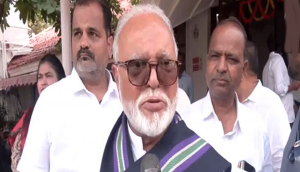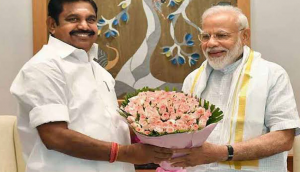Why AAP approached SC to define Centre-Delhi relations

One might ask why the AAP government needed to go to Supreme Court to file a suit under Article 131 of the Constitution to define the Constitutional position of the Centre and the state of Delhi. One can also say that the rights of the Delhi government and of Lieutenant Governor of Delhi along with of the central government are clearly worded in 239A of the Constitution, then what is the need to seek clarity from the Supreme Court? One can also ask that when the matter is already pending in Delhi High Court, then why rush to the highest court?
I know these are constitutional questions and should be answered accordingly. But unfortunately these questions have their genesis in the muddy politics of Delhi's ruthless power corridors. Last year in February when AAP won an unprecedented mandate from the people of Delhi, we in the party thought it would be smooth sailing for 5 years but we had no idea what was in store.
AAP was in for a rude shock when Chief Minister of Delhi was told by the office of the LG that he can't appoint his own Chief Secretary as Delhi is a Union Territory and that the service department which controls appointments, falls under the jurisdiction of the LG. It was a constitutional coup of sorts.
Crisis
Now there was a peculiar situation. The AAP government was elected by the people of Delhi. Arvind Kejriwal was the face of the administration and governance in Delhi but he could not appoint a single officer of his choice. That would be dictated by the central government via the LG. Immediately, propaganda was unleashed that AAP did not know how to govern and did not want to follow the Constitution.
The AAP government tried to meet the Prime Minister and Home Minister, the nodal authority for the Delhi government, but it was of no use. The crisis continued. As time passed, it was quite apparent that there was a larger conspiracy to make the AAP government fail.
On 8 June, 2015, a circular was issued by the Home ministry that the Anti-Corruption-Bureau (ACB) had been taken over by the central government. It is to be noted that the same ACB was with the Delhi government since its inception in late 1960s.
Even when AAP formed its first government in December 2013, it was reporting to Delhi CM. And it was the same ACB, which on the instructions of CM Kejriwal, registered an FIR against Reliance Chairman Mukesh Ambani, then Cabinet Minister Veerappa Moily and former minister Murli Deora. The central government did not question the jurisdiction of the Delhi CM vis-a-vis the ACB. These gentlemen challenged the order in the High Court and even in court this question was not raised.
Corruption has been AAP's main plank; ACB was very effective in curbing corruption in the AAP's first term of 49 days. Once ACB was snatched away from the government, it became very difficult to fight the menace called corruption. It was an attempt to break our resolve and project that our promise to fight corruption was hollow.
Blocking legislations
Then, another attempt was made to make the legislative machinery irrelevant. As many as 23 Bills have been passed by the Delhi Assembly. Except for 4 Bills of appropriation, deemed to be money Bills, all other Bills were kept pending for the LG'S approval for 6 months to one year, but no action was taken.
The LG very coolly forwarded these bills, including the Lokpal Bill, to the home ministry, which in turn willfully forgot to respond. The Delhi Assembly practically became dysfunctional as every Bill which has to become law, should constitutionally be signed by the LG after being passed by the House. This should, for all practical purposes, be just a formality as LG goes by the advice of the elected government.
When the AAP government raised its voice after a year then all these Bills were returned by the Home ministry with a note to the LG that "he should have exercised his discretion, and if need be, any such Bill should be referred to the president of India, and if president could feel any need to seek any advice from the central government then such bills can reach home minister's office".
This note clearly establishes that either the LG did not know the constitutional position about his rights and duties. Or was it a tactic to paralyse the governance? The home ministry also can't act so coy. Why did it take almost a year to reach this conclusion? Why weren't these bills returned back immediately? This shows a larger design.
Certain administrative actions of the AAP government have also been declared null and void like increasing the salaries of the DANICS officers, setting up of a commission of enquiry under the 1952 Act and so on. It is in this context that it became very urgent for the functioning of the Delhi government that issues related to the legislative and administrative powers of the Centre and state be resolved immediately.
The AAP government knocked the door of the Delhi High Court long back on several such matters. Now it has approached the highest court with an understanding that "SC has the exclusive jurisdiction to decide disputes relating to the constitutional relationship between the NCT of Delhi and Union of India, and no other court has jurisdiction to entertain such a dispute since it is a dispute between the Union and a State, and impacts the federal structure of the Constitution".
Federalism is part of the basic structure of the Constitution. The relationship between Centre and state has been a matter of great debate. Founders of the Indian Constitution envisaged a cordial and organised relationship between the two but the opposite is true in practice. The central government, irrespective of ideology, has been misusing it power and more than hundred state governments have been dismissed till date including the recent cases of Arunachal Pradesh and Uttarakhand. It is in this context that the Supreme Court's intervention in this matter under the jurisdiction vested it under Article 131.
More in Catch:
Every Bollywood female protagonist from 1980-2015 features on this graph. It's depressing
#AgustaWestland: why ED has called ex-IAF chief SP Tyagi for questioning
Movie Review: Baaghi is another soulless Tiger Shroff showpiece.
In South 24 Parganas, TMC represents the good, the bad & the ugly
First published: 30 April 2016, 8:43 IST





![BJP's Kapil Mishra recreates Shankar Mahadevan’s ‘Breathless’ song to highlight Delhi pollution [WATCH] BJP's Kapil Mishra recreates Shankar Mahadevan’s ‘Breathless’ song to highlight Delhi pollution [WATCH]](https://images.catchnews.com/upload/2022/11/03/kapil-mishra_240884_300x172.png)

![Anupam Kher shares pictures of his toned body on 67th birthday [MUST SEE] Anupam Kher shares pictures of his toned body on 67th birthday [MUST SEE]](https://images.catchnews.com/upload/2022/03/07/Anupam_kher_231145_300x172.jpg)






